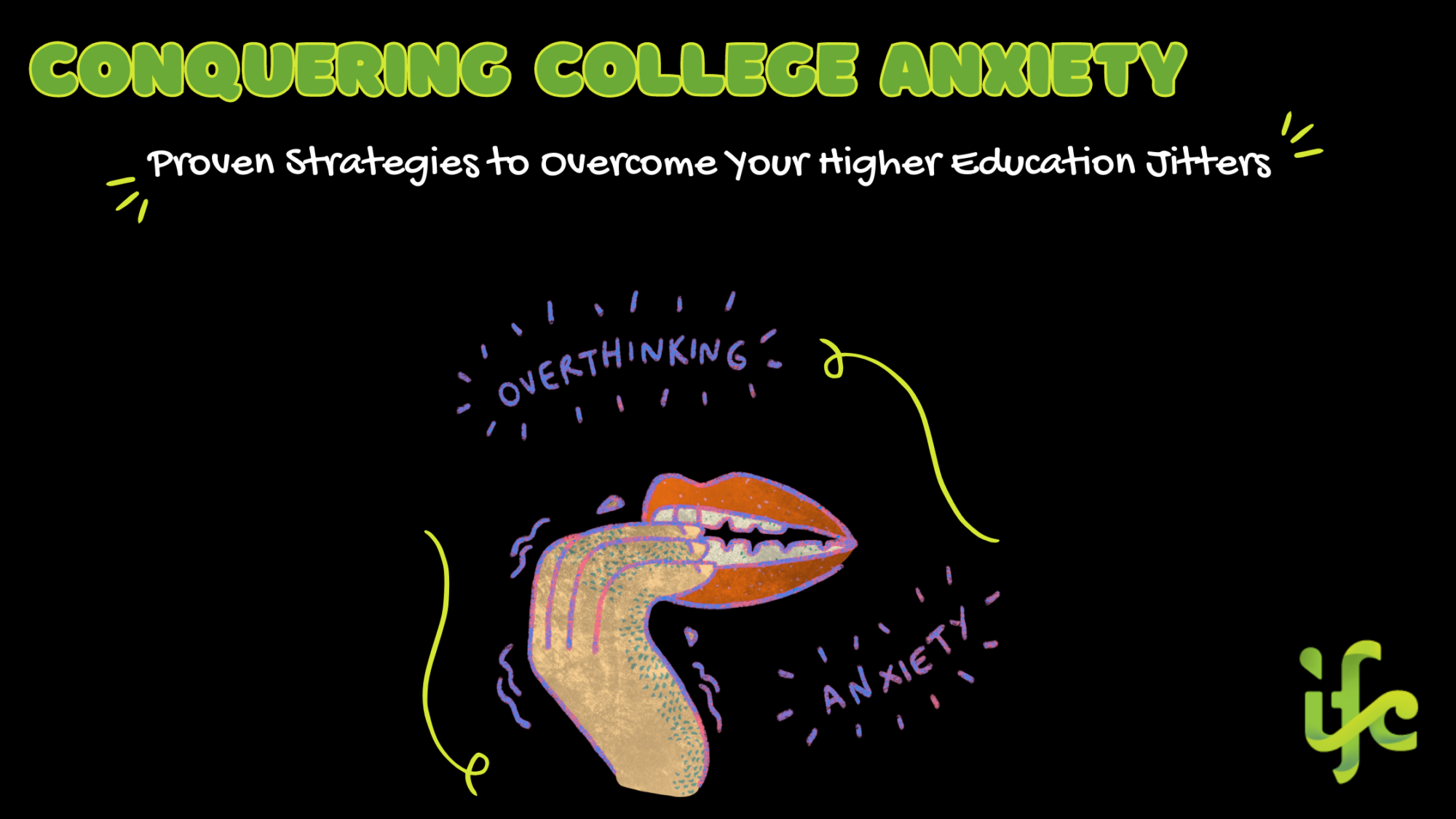Proven Strategies to Overcome Your Higher Education Jitters
Starting college is an exciting and transformative experience, but it can also be a source of anxiety for many individuals. The transition from high school to college brings a whole new set of challenges and uncertainties, which can trigger feelings of stress and apprehension. However, by proactively managing your anxiety, you can make this transition smoother and more enjoyable. Let’s explore effective strategies to cope with anxiety as you embark on your college journey!
Acknowledge and Normalize Your Anxiety:
- First and foremost, understand that feeling anxious during this transition is normal! It’s a significant life change, and it’s okay to experience a range of emotions. Rather than fighting or suppressing your anxiety, acknowledge and accept it. By normalizing your feelings, you can create space for self-compassion and develop a more balanced perspective.
Seek Support:
- Transitioning to college is easier when you have a strong support system. Reach out to family, friends, or mentors who can offer guidance and lend an empathetic ear. Additionally, most colleges provide counseling services or support groups for students struggling with anxiety. Take advantage of these resources to talk about your concerns and learn effective coping mechanisms.
Establish a Routine:
- Creating a routine can provide a sense of stability and familiarity during this period of change. Develop a schedule that incorporates your classes, study time, social activities, and self-care. Knowing what to expect each day can help alleviate anxiety and make your college experience more manageable.
Practice Self-Care:
- Self-care is crucial for maintaining good mental health. Prioritize activities that promote relaxation and well-being. Engage in regular physical exercise, practice deep breathing or meditation, get enough sleep, and eat a balanced diet. Taking care of your basic needs allows you to better manage stress and anxiety.
Utilize Time Management Skills:
- College often demands effective time management skills. Break down your tasks into manageable chunks and create a study plan to stay organized. Procrastination and avoidance can lead to heightened anxiety, so try to stay on top of your assignments and responsibilities. Prioritize your tasks and set realistic plans to achieve your goals to avoid feeling overwhelmed.
Connect with Peers:
- Building a supportive network of friends and peers in college can make a significant difference in your overall well-being. Attend orientation events, join clubs or organizations that align with your interests, and participate in social activities. Connecting with like-minded individuals who share your experiences and interests can provide a sense of belonging and alleviate anxiety.
Challenge Negative Thoughts:
- Anxiety often stems from negative thoughts and worries about the future. Learn to identify and challenge these negative thinking patterns. When you catch yourself spiraling into catastrophic thoughts, ask yourself if there is evidence supporting those thoughts or if there are alternative perspectives. Practice reframing negative or unhelpful thoughts into more realistic and positive ones.
Take Breaks and Engage in Relaxation Techniques:
- Feeling overwhelmed can intensify anxiety. Allow yourself to take breaks and engage in relaxation techniques when needed. Experiment with activities such as journaling, listening to music, practicing mindfulness, or engaging in a hobby that brings you joy. Taking breaks and stepping away from stressful situations can help restore your energy and reduce anxiety levels.
Transitioning to college may be accompanied by anxiety, but with the right strategies, you can successfully navigate this important phase of your life. Remember to be kind to yourself, seek support, and implement self-care practices. By acknowledging your anxiety and utilizing these coping mechanisms, you can embrace the college experience with greater resilience, confidence, and overall well-being.

